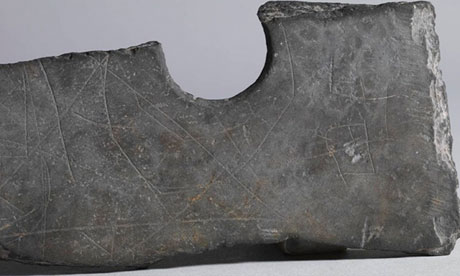In order for God to be considered as the complete manifestation of goodness, he would not be able to do anything considered evil. Since God is omnipotent, he should be able to do anything, even that which is considered evil. We see contradictory traits here, as being omnipotent conflicts with that of being completely good. Can God do an evil action? It would seem that one of his bestowed traits of omni-ism has failed him here, since he is in fact incapable of committing certain actions. Either God is not completely good or he is not omnipotent; these are not cohering traits.Of course he is right: if there is anything a god can't do, it is not omnipotent. Conversely, an omnipotent god can think and do evil. This is just one example of the muddle theists get themselves into when they try to flatter their imaginary gods with unbounded characteristics like omnipotence, omnibenevolence, omniscience, etc., but fail to apply even a modicum of logic.
With this in mind I started to compile a list of logical fallacies theists have got themselves into with this lack of clarity of thought and insistence on omni everything for their own favourite god or gods.
Omni-merciful.
Muslims especially are fond of telling us how their god is all or infinitely merciful yet they also tell us he is also the most just. As Dan Barker pointed out in Godless: How an Evangelical Preacher Became One of America's Leading Atheists, a god can't be both. If it is infinitely merciful it will forgive everything and not exact any punishment for anything, yet to be perfectly just means that the punishment will be exactly proportional to the crime. Clearly, it can't both punish and forgive everything so one or the other claim must be false.
Incidentally, an infinitely merciful god would forgive non-belief and even belief in another god. No behaviour would exclude you from Heaven so there would be no need to worship, rituals, or even basic standards of behaviour to get to Heaven. It would make not one iota of difference how you behaved in life.
Omnipotent
Not only does being omnipotent mean that a god can't not think or do evil, it also means it could both make an object too heavy for it to lift and not be able to make such an object, at the same time. In either case its power would be constrained, and a god with constrained powers is clearly not in full control and is subject to some superior power or principle.
Omniscience
Christians, Muslims and Jews, almost without exception, will claim their god knows everything. This means it not only knows everything that has happened but it also knows everything that will happen. But knowing everything that will happen means the god in question has no free will. Combine this with omni-infallibility or inerrancy and you have a totally powerless god with no free will. It is merely an observer of events and had no more power than a rock on the Moon. It exists in a pre-ordained, unchangeable Universe in which all the future is fixed, otherwise something could happen that the god didn't know would happen so it would be neither omniscient nor infallible.
Claiming their god has the power of prophecy is another form of the claim to omniscience. A god which can accurately prophesy the future, either directly or via a prophet, must exist in a predictable Universe, yet a predictable Universe can't be changed in any way after the prophecy is made or the future becomes unknowable, so the god is rendered impotent and ineffective. If the Universe remains changeable the god won't be able to make accurate prophecies.
Yet all three major Abrahamic religions as well as Sikhism, and many minor sects such as Mormonism, claim to have been founded by prophets!
Omnibenevolence
This claim is perhaps the most obvious example of a religious claim being made which simply defies glaring evidence to the contrary, especially when, as it it invariably is, it is combined with a claim of omnipotence and omniscience. It is indisputable that suffering and want exist in the Universe, not just for humans but for all forms of life, yet an omnibenevolent, omnipotent god would not permit them to. It follows from the existence of suffering and want that, if a god exists it:
- Is aware of it yet is powerless to prevent it, so is not omnipotent.
- Is aware of it but is indifferent to it, so is not omnibenevolent.
- Is unaware of it, so is not omniscient (nor omnipotent since an inability to know shows a lack of power).
But you have to question whether these universal claims made by all major religions about their gods' qualities and character are genuinely believed or merely attempts to flatter and mollify the gods in question. If they really believe them, why do they pray to these gods? Prayer is only necessary if you don't trust the god to made the right decision or to be aware of what is happening.
It betrays a lack of trust in the god's omniscience to tell it about something, such as your love for it or your gratitude, or that something unwanted is happening, like a disease or a natural disaster. An omniscient god would be aware of these things.
It betrays a lack of trust in the god's benevolence to request it to change something for the better because an omnibenevolent god would ensure only the best best was happening anyway.
It betrays a lack of trust in the god's omnipotence to think that it needs human intervention and praise to empower it.
So the only omni which seems to fit gods accurately is that of omni-irrationality, or rather omni-irrationality is the belief in such gods in the first place.
But maybe Christians, Jews, Muslims or Sikhs can explain away these beliefs and show how belief in such gods is rational. I think people will understand if you can't. Religion is nothing if not irrational, hence the need for 'faith' in the absence of any evidence and the need for apologetics when even faith isn't good enough.
| Twitter Tweet | StumbleUpon | Reddit |

















